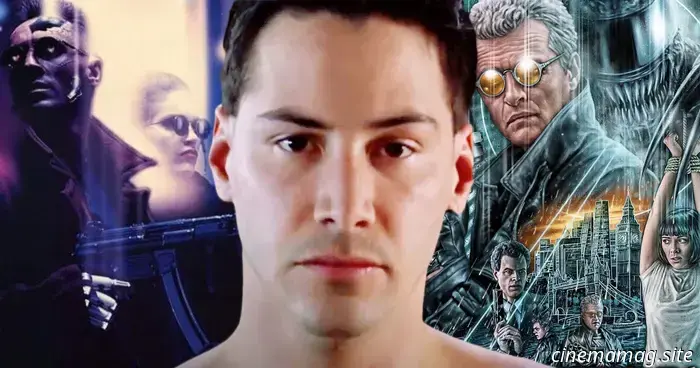
Must-See Cyberpunk Films
Casey Chong presents eight exceptional cyberpunk films you should add to your watchlist…
Cyberpunk films made a significant impact in the early 1980s, particularly with Ridley Scott’s groundbreaking Blade Runner, which marked a turning point not only in visual aesthetics but also in its grim portrayal of urban dystopia and artificial intelligence. Other notable cyberpunk films like Akira, Ghost in the Shell, and The Matrix effectively captured the spirit of the subgenre, interweaving thought-provoking themes with popular entertainment. However, many cyberpunk films have slipped under the radar or faded from memory after their initial releases. Here are eight cyberpunk films that are definitely worth watching if you haven't seen them yet…
**Hardware (1990)**
Richard Stanley's directorial debut, Hardware, combined gritty sci-fi horror that doesn't shy away from graphic violence with a dark cyberpunk dystopia. The film features a menacing killer robot named M.A.R.K. 13, resembling a fusion of The Terminator and RoboCop 2, but stands out with its genuinely terrifying presence and surprisingly effective special effects for a low-budget film that reportedly cost just $1.5 million. Stanley also showcases a talent for both gritty and stylized visuals, reminiscent of Mad Max aesthetics. Additionally, the film deserves acclaim for its impressive soundtrack, featuring tracks like Iggy Pop's ‘Cold Metal’ (with Pop making a cameo as Angry Bob), Motörhead’s ‘Ace of Spades,’ and Ministry’s ‘Stigmata.’
**Nemesis (1992)**
Albert Pyun was often hit-or-miss as a filmmaker, but he produced some memorable B-movies, including Cyborg and Nemesis, the latter being the pinnacle of his work. Although Nemesis draws heavily from Blade Runner and The Terminator, it remains consistently engaging for a B-grade film. Pyun effectively used various locations, from Kaiser Steel Mill in Fontana, California, to Old Tucson in Arizona, to create the film's post-apocalyptic atmosphere. The action is exhilarating, with Olivier Gruner delivering a stoic performance as the technologically enhanced half-human, half-cyborg LAPD officer Alex Rain. Although four inferior sequels followed, none could match the quality of the original 1992 film.
**Split Second (1992)**
Rutger Hauer, a familiar face in the cyberpunk genre for his role as Roy Batty in Blade Runner, takes on an antihero role in Split Second. He portrays a disgruntled cop navigating a dystopian, flood-prone London while hunting down a mysterious serial killer to avenge his former partner’s death. The film features B-movie style cyberpunk aesthetics and adds some neo-noir elements. It indulges in genre mashups of cyberpunk, monster-movie tropes, and psychological thriller, but remains enjoyable, primarily due to Hauer's dedicated performance. The film even introduces a buddy-cop dynamic between Hauer’s hardened detective and Neil Duncan’s timid, Oxford-educated partner. Despite its low budget of $7 million, the action sequences are executed surprisingly well. While Split Second barely broke even at its release, it has since gained a cult following.
**Johnny Mnemonic (1995)**
Before Keanu Reeves revitalized his career in the sci-fi genre with The Matrix, he ventured into cyberpunk with Johnny Mnemonic. Directed by music video veteran Robert Longo, it features an adaptation of William Gibson’s own 1981 short story, resulting in a quintessential 90s cyberpunk film that captures themes of information overload, data breaches, and virtual reality, entwined with a corporate conspiracy involving the Yakuza led by Takeshi Kitano and Denis Akiyama. Keanu effectively embodies the role of an antihero and data courier tasked with transporting sensitive information while evading the Yakuza. Although some special effects may feel dated and the narrative wavers, Johnny Mnemonic remains conceptually captivating with a straightforward B-movie atmosphere.
**Strange Days (1995)**
Despite James Cameron’s involvement as co-writer and co-producer, Strange Days struggled at the box office, grossing only $17 million against a $42 million budget. However, this Kathryn Bigelow-directed dystopian sci-fi thriller is deserving of a second look, as it skillfully merges themes inspired by the 1992 Los Angeles riots, police brutality, and the risks associated with shared memories via a controversial device called SQUID, which records and transfers memories directly from the user’s brain to a MiniDisc. Ralph Fiennes shines in his role as a sleazy black-market dealer selling SQUID recordings, effectively supported by Angela Bassett as his no-nonsense bodyguard and chauffeur. The film intriguingly incorporates a murder mystery and features Bigelow’s signature stylish and dynamic action sequences, including a thrilling nighttime car chase.
**eXistenZ (1999)**
David Cronenberg revisits themes from Videodrome









Other articles
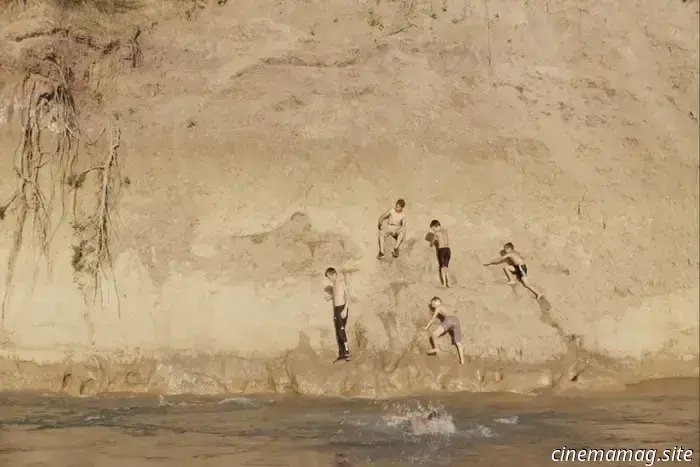 Cannes Review: Imago Discovers a Filmmaker of Chechen Origin in Pursuit of a Sense of Belonging
Midway through Imago, a captivating documentary by Déni Oumar Pitsaev, the director engages in a discussion with his mother regarding the land she acquired for him in Pankisi (a valley in Georgia close to the Chechnya border). When he inquires about her reasons for the purchase, she replies: "...to ensure you don't feel lost, without a homeland... everyone
Cannes Review: Imago Discovers a Filmmaker of Chechen Origin in Pursuit of a Sense of Belonging
Midway through Imago, a captivating documentary by Déni Oumar Pitsaev, the director engages in a discussion with his mother regarding the land she acquired for him in Pankisi (a valley in Georgia close to the Chechnya border). When he inquires about her reasons for the purchase, she replies: "...to ensure you don't feel lost, without a homeland... everyone
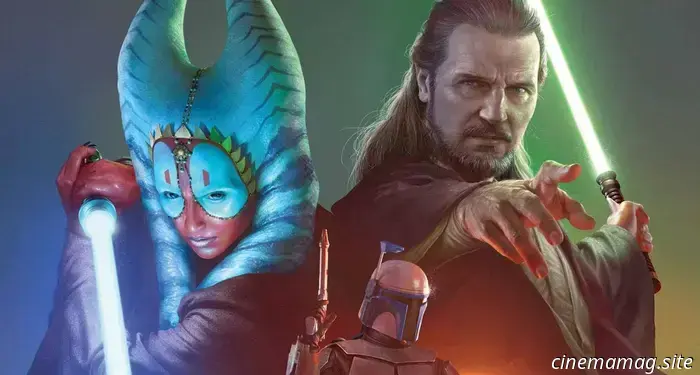 Star Wars: Jedi Knights #4 - Comic Book Sneak Peek
Marvel Comics has released the official preview for Star Wars: Jedi Knights #4 prior to its launch next week; take a look here… The ultimate galactic chase begins! Phaedra (featured in Star Wars: Han Solo & Chewbacca) has pilfered thousands of credits from Jabba the Hutt, and now Aurra Sing, Zam Wesell, Bane Malar, […]
Star Wars: Jedi Knights #4 - Comic Book Sneak Peek
Marvel Comics has released the official preview for Star Wars: Jedi Knights #4 prior to its launch next week; take a look here… The ultimate galactic chase begins! Phaedra (featured in Star Wars: Han Solo & Chewbacca) has pilfered thousands of credits from Jabba the Hutt, and now Aurra Sing, Zam Wesell, Bane Malar, […]
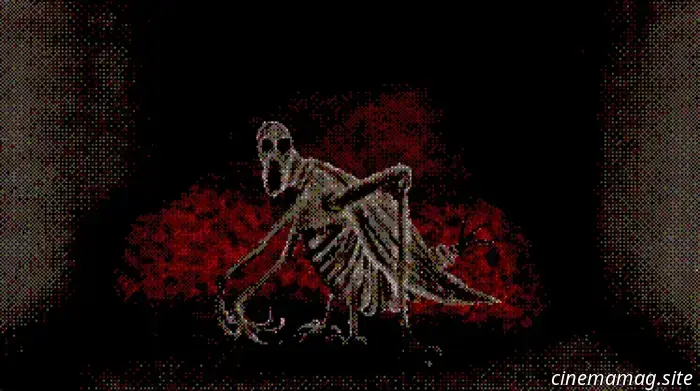 The unsettling dungeon crawler, Horripilant, has released a demo and a teaser trailer.
Pas Game Studio has launched a demo for their forthcoming eerie Vermis-inspired incremental dungeon crawler, Horripilant. This demo offers players a chance to experience the game's main incremental mechanics and enables continuous gameplay until the player attains level 10. A new trailer is available below... Those who buy the game after [...]
The unsettling dungeon crawler, Horripilant, has released a demo and a teaser trailer.
Pas Game Studio has launched a demo for their forthcoming eerie Vermis-inspired incremental dungeon crawler, Horripilant. This demo offers players a chance to experience the game's main incremental mechanics and enables continuous gameplay until the player attains level 10. A new trailer is available below... Those who buy the game after [...]
 New to Streaming: Who by Fire, A Desert, Bono: Stories of Surrender, On Swift Horses, and Additional Titles
Every week, we spotlight the significant titles that have recently been added to streaming services in the United States. Take a look at this week's picks below and find previous compilations here. Bono: Stories of Surrender (Andrew Dominik) Following the controversial release of Blonde three years ago, there hasn't been any progress on a new narrative film from Andrew Dominik, but he's returned.
New to Streaming: Who by Fire, A Desert, Bono: Stories of Surrender, On Swift Horses, and Additional Titles
Every week, we spotlight the significant titles that have recently been added to streaming services in the United States. Take a look at this week's picks below and find previous compilations here. Bono: Stories of Surrender (Andrew Dominik) Following the controversial release of Blonde three years ago, there hasn't been any progress on a new narrative film from Andrew Dominik, but he's returned.
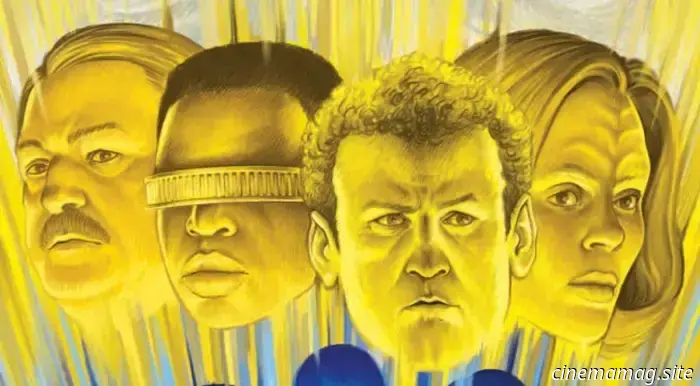 Star Trek #32 - Comic Book Teaser
The "Lore War" saga continues in Star Trek #32, which releases this Wednesday. Below, we have the official preview of the issue; check it out… In the fifth installment of “Lore War,” Sisko, now armed with the information on how to finally conquer Lore, and the remnants of his crew disperse to […]
Star Trek #32 - Comic Book Teaser
The "Lore War" saga continues in Star Trek #32, which releases this Wednesday. Below, we have the official preview of the issue; check it out… In the fifth installment of “Lore War,” Sisko, now armed with the information on how to finally conquer Lore, and the remnants of his crew disperse to […]
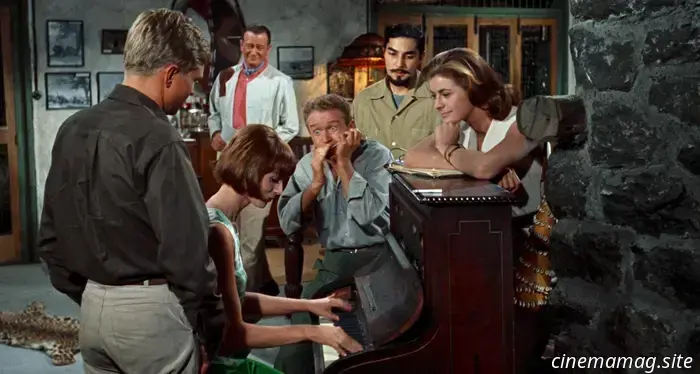 NYC Weekend Viewing: Hatari! on IB Technicolor
NYC Weekend Watch is our weekly summary of repertory screenings. Roxy Cinema will showcase an IB Technicolor print of Howard Hawks' Hatari! this Friday and Sunday; additionally, Friday features Mad Max: Fury Road on 35mm and Agnès Varda's Lions Love (...and Lies); there will also be showings of John Ford's The Grapes of Wrath and Star Trek II: The Wrath.
NYC Weekend Viewing: Hatari! on IB Technicolor
NYC Weekend Watch is our weekly summary of repertory screenings. Roxy Cinema will showcase an IB Technicolor print of Howard Hawks' Hatari! this Friday and Sunday; additionally, Friday features Mad Max: Fury Road on 35mm and Agnès Varda's Lions Love (...and Lies); there will also be showings of John Ford's The Grapes of Wrath and Star Trek II: The Wrath.
Must-See Cyberpunk Films
Casey Chong presents eight outstanding cyberpunk films that deserve a spot on your watchlist. The genre began to gain prominence in the early 80s with Ridley Scott’s iconic film Blade Runner, which set a benchmark not only for its striking visual aesthetics but also for its grim portrayal of urban dystopia and artificial intelligence. Following this, other well-known cyberpunk films such as Akira...
